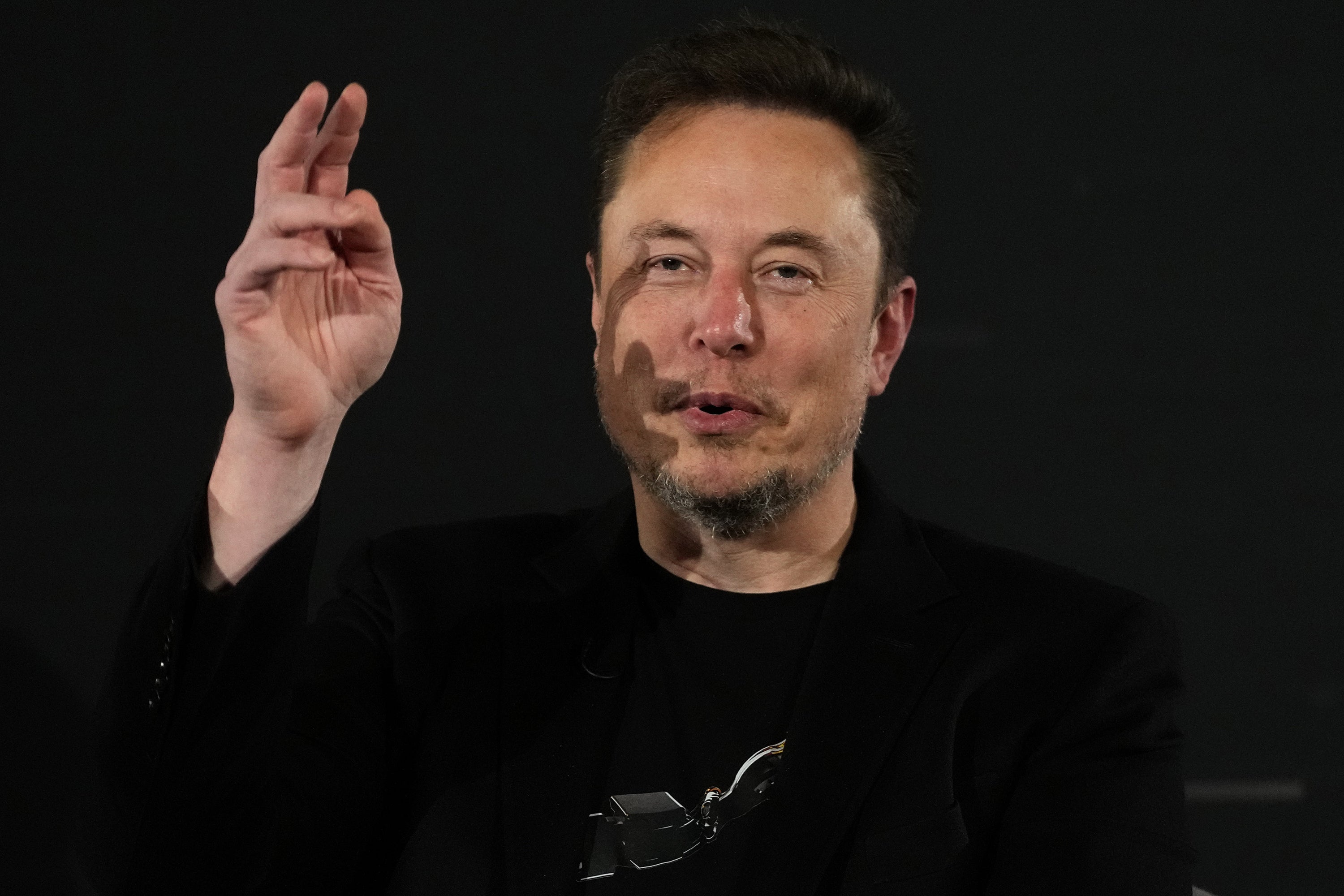‘Fatally flawed’: Delaware judge rejects Elon Musk’s second bid to ram through $56bn pay package
Judge Kathleen McCormick described the electric car maker’s legal arguments as ‘creative’ but ‘fatally flawed’

Your support helps us to tell the story
From reproductive rights to climate change to Big Tech, The Independent is on the ground when the story is developing. Whether it's investigating the financials of Elon Musk's pro-Trump PAC or producing our latest documentary, 'The A Word', which shines a light on the American women fighting for reproductive rights, we know how important it is to parse out the facts from the messaging.
At such a critical moment in US history, we need reporters on the ground. Your donation allows us to keep sending journalists to speak to both sides of the story.
The Independent is trusted by Americans across the entire political spectrum. And unlike many other quality news outlets, we choose not to lock Americans out of our reporting and analysis with paywalls. We believe quality journalism should be available to everyone, paid for by those who can afford it.
Your support makes all the difference.A Delaware judge has rejected Tesla's bid to ram through a humongous pay package for its CEO Elon Musk after striking it down once already earlier this year.
Judge Kathleen McCormick ruled in January that the proposed $56bn bonanza originally offered by Tesla's board had violated shareholders' rights because the entire "negotiation" process was effectively controlled by Musk.
Afterwards, Tesla quickly moved to ratify the payout – described in court documents as the largest ever seen in public markets – via a shareholder vote, then asked the court to approve it after all.
But on Monday Judge McCormick flatly denied that motion in a scathing judgement, describing the electric car maker's legal arguments as "fatally flawed" and at times "indefensible".
"The large and talented group of defense firms got creative with the ratification argument, but their unprecedented theories go against multiple strains of settled law," she wrote.
"Novelty is not necessarily damning, but defendants’ novel request flies in the face of the policy bases for all relevant rules of procedure."
McCormick also rejected an equally massive and unprecedented bid by the plaintiff's lawyers to receive their legal fees in the form of $5.6bn in Tesla stock, which McCormick described as "a bold ask".
In a statement on Monday evening, Tesla vowed to appeal the verdict to a higher court, saying it was only seeking to pay Musk "what he's worth".
Musk agreed, declaring that "shareholders should control company votes, not judges" while sharing a social media post by investor Cathie Wood that lambasted McCormick as an "activist judge".
Tesla shares fell by as much as 1.4 percent in after-hours trading.
The dispute began in 2018 when Tesla shareholder Richard Tornetta objected to an unprecedented stock grant for Musk, which had been approved by Tesla's board and by a majority of shareholders.
The original maximum value was about $56bn, although that number has fluctuated since along with Tesla's share price.
McCormick ultimately sided with Tornetta's lawyers, finding that Musk had used his influence over the company and close ties with multiple board members to create a "deeply flawed" approval process that arrived at an "unfair price".
"Put simply, neither the compensation committee nor the board acted in the best interests of the company when negotiating Musk’s compensation plan. In fact, there is barely any evidence of negotiations at all," she wrote.
In rejecting Tesla's arguments on Monday, McCormick argued that the company could not simply wipe away the results of its previous misconduct by persuading a majority of shareholders to approve that conduct retrospectively.
To do so, she said, would severely undermine shareholders' ability to challenge executive pay and reduce the deterrent against corporate wrongdoing. "That would be bad," she added.
Nevertheless, some Wall Street figures criticised her decision. "This is a Twilight Zone situation," said Wedbush analyst Dan Ives, who is known for being optimistic about Tesla's future share price.
"It’s very frustrating for Tesla shareholders, but ultimately we believe Tesla and Musk will win this battle in Delaware.”
Cathie Wood likewise said: "No judge has the right to determine CEO compensation... [McCormick] will lose this fight in the Supreme Court."
Join our commenting forum
Join thought-provoking conversations, follow other Independent readers and see their replies
Comments